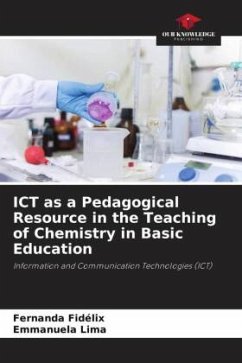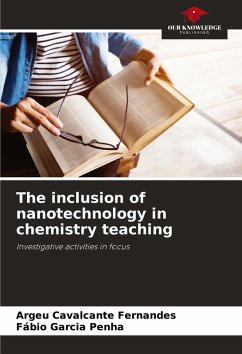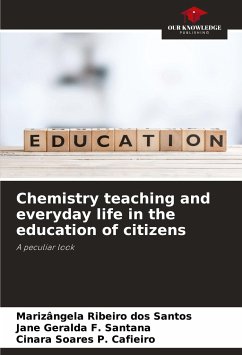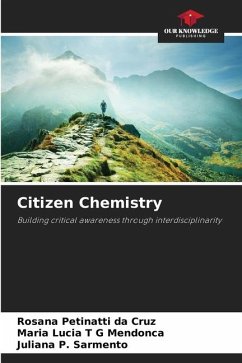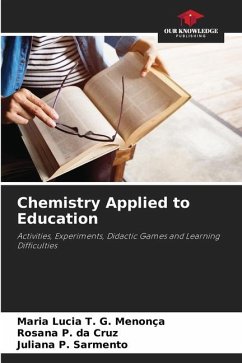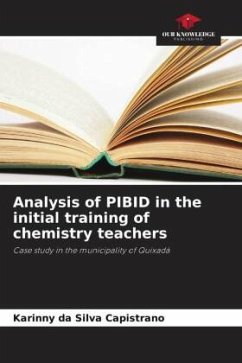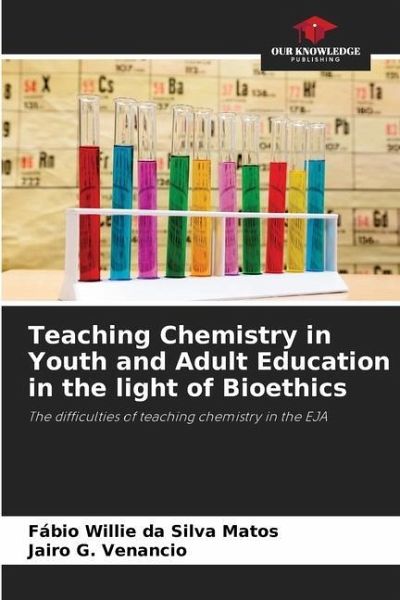
Teaching Chemistry in Youth and Adult Education in the light of Bioethics
The difficulties of teaching chemistry in the EJA
Versandkostenfrei!
Versandfertig in 6-10 Tagen
27,99 €
inkl. MwSt.

PAYBACK Punkte
14 °P sammeln!
Faced with the need to reflect on the teaching of chemistry in Youth and Adult Education (EJA), a science that is sometimes considered abstract when it comes to the absence or insufficiency of resources for better learning, we sought to detail reports from a school located in an area of social vulnerability that highlighted the main challenges perceived by students in this type of education. The reports were obtained by means of a research questionnaire and the results presented in the form of graphs followed by descriptions of the points considered important to the characterisation of the stu...
Faced with the need to reflect on the teaching of chemistry in Youth and Adult Education (EJA), a science that is sometimes considered abstract when it comes to the absence or insufficiency of resources for better learning, we sought to detail reports from a school located in an area of social vulnerability that highlighted the main challenges perceived by students in this type of education. The reports were obtained by means of a research questionnaire and the results presented in the form of graphs followed by descriptions of the points considered important to the characterisation of the study in order to better understand the needs of the target audience of Youth and Adult Education. These reflections are supported by the bioethical framework of Principialism, which is based on the coexistence of four principles: beneficence, acting for the benefit of others; non-maleficence, not inflicting harm or evil on oneself or others; autonomy, the ability to act independently, without coercive influences; and justice, as the promotion of equality, or fairness, of treatment for all individuals, according to established standards.



